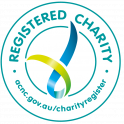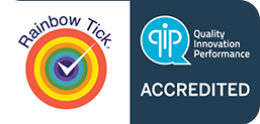Where can I find counselling for children in Melton?
If you need qualified counselling for children in Melton, you’re in the right place. Better Place Australia child counselling in Melbourne has counselling rooms right here in Melton at 195 Barries Rd Melton West.
You can access these easily via High Street and then turning into Barries Road. You’ll find Better Place Australia in the Melton Health Hub which almost backs onto the M8 Western Freeway (and is adjascent to the Woodgrove Shopping Centre).
If you ever need another location for child counselling, here are all the Better Place Australia child counselling locations:
Better Place Australia counselling for children in Melton is a positive step forward
Parents want the best for their child and sometimes that means engaging child counsellors to support the child through difficult times. Better Place Australia counselling for children in Melton has qualified and caring counsellors with a track record of achieving positive outcomes for children.
As children grow, they face new challenges and situations that may require guidance and support. The process of counselling for children in Melbourne is an important step for the child to navigate these safely and successfully.
The challenges could be:
- a change of school
- family conflict
- loss and grief
- peer pressure
- puberty
- any other issue that may be having a negative effect on the child’s mental health and well-being.
By seeking child counselling early for your child, it can help prevent issues from escalating.
What happens during a child counselling session?
Better Place Australia child counsellors work one-on-one with children to assess their needs. Based on this, the child counsellor incorporates age-related techniques, such as cognitive behaviour therapy, narrative or play therapy to address the issues.
These techniques can help children to:
- use coping skills
- express their feelings in a safe place
- manage strong emotions such as blame, guilt and anger
- learn how to express themselves and relate positively to others
- understand their family and friend relationships as they are now and how they change
- develop resilience and improve emotional stability.
The counselling style depends on the child’s age and the issues being experienced.
How can parents be proactive?
Many people are unaware that when a child is exposed to parental conflict, it can cause more harm to the child than actual separation or divorce. There are powerful steps parents can take to help protect their child from harm.
These include:
- putting the interests of the child first during decision-making
- ensuring both parents have meaningful involvement in their child’s life
- keeping parental conflict away from the child as much as possible
- listening to how the child feels about things.
A better outcome with Better Place Australia child counselling
Every child reacts differently to issues and changes in life. The aim of Better Place Australia child counselling is to help a child understand and manage the changes in a positive way.
Here are just some of the skills a child can learn through Better Place Australia child counselling:
- an increased ability to better understand and manage feelings
- decreased levels of distress and challenging behaviours
- improved communication and problem solving
- increased ability to trust and form healthy relationships.
If you’re looking for child counselling in Melbourne and are able to access the Melton location or one of our other locations, please contact Better Place Australia.
Learn more about the mental health and well-being of your child
If you’d like to learn more about mental health and well-being in children and family units, visit the Centre for Better Relationships website.
Centre for Better Relationships is the research and advocacy arm of Better Place Australia, with resources for you to learn more.
Read sector news articles such as: Understanding Child Development; and Highlighting the Imperative of Investing in Children and Young People’s Safety.
There are also learning videos you can watch, such as: Preventing Emotional Abuse of Children; Supporting Children Who Have Disclosed Trauma; The Whole Child; and The Role of Parents Preventing Emotional Abuse of Children.
By learning more, you will be better equipped to protect your children and support them during tough times.






